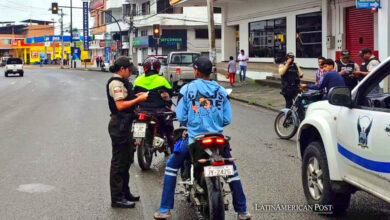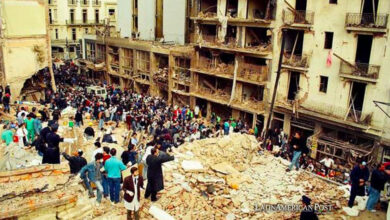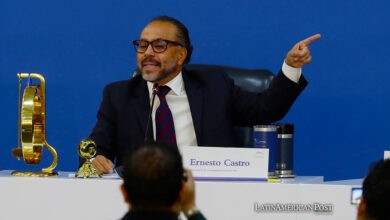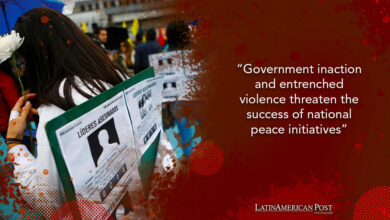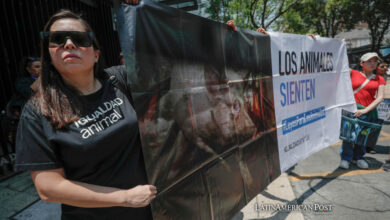Stolen Arsenal: Corruption Strips Colombia’s Military of Bullets and Missiles
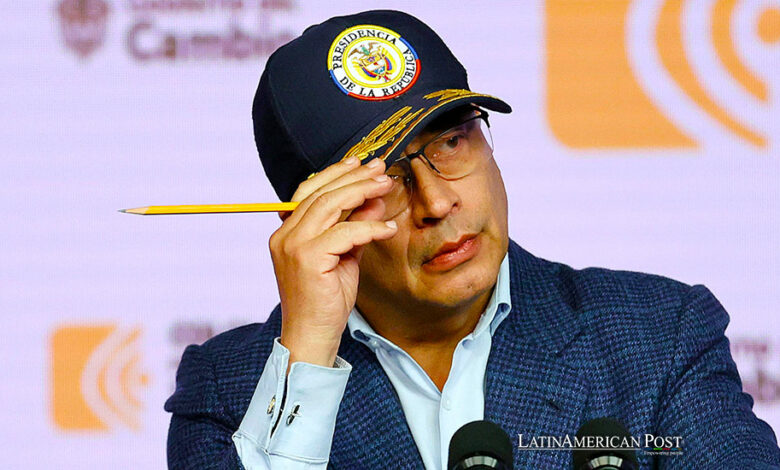
Colombian President Gustavo Petro reveals over a million bullets and significant quantities of military-grade explosives, including missiles, are missing from national arsenals, attributing the massive loss to entrenched corruption within the military.
In a startling revelation that has sent shockwaves through Colombia and beyond, President Gustavo Petro announced that an exhaustive inventory check of the nation’s military weapons storage revealed a troubling deficit: over a million bullets and thousands of explosives, including high-grade missiles, have mysteriously vanished from military bases. This alarming disclosure underscores a grave concern about the integrity and security of military arsenals in a country still grappling with the echoes of a long-standing internal conflict.
Unprecedented Security Breach
The lost munitions include more than 1.3 million 5.56mm bullets, primarily from the military bases located in Tolemaida in central Colombia and La Guajira province. Additionally, hundreds of thousands of bullets of various calibers, two Spike anti-tank missiles, 37 Nimrod missiles, thousands of grenades, mortar rounds of different sizes, and 550 rocket-propelled grenade launchers are reported missing.
President Petro, in a joint statement with the defense minister and the head of the armed forces, pointed squarely at corruption within the military as the root cause of this significant security breach. “The only way to explain this type of lacking (inventory) is that there has existed, for a long time, networks of people in the armed forces and civilians dedicated to mass commercialization of arms, using legal arms from the Colombian state,” Petro asserted.
This situation poses a domestic threat and has potential international repercussions. The president suggested that the missing weapons might have found their way into the hands of Colombian armed groups or, worse, could have been smuggled to Haiti or entered the vast and shadowy networks of the international black market.
Profound Implications for Peace and Stability
The implications of such a breach are profound. Colombia, with a turbulent history marked by a six-decade internal conflict that has claimed over 450,000 lives, is at a critical juncture. The nation’s journey toward peace and stability is jeopardized not only by ongoing violence but now also by the potential arming of illegal groups with state-owned weapons.
President Petro has ordered a rigorous dismantling of corruption networks within the security forces to confront this crisis. Investigations spearheaded by judicial authorities are already underway, with some officials being removed from their posts, and a thorough tracing of responsibilities across dozens of weapons storage areas is being conducted.
Defense Minister Ivan Velasquez has engaged with journalists to outline the steps to address this monumental issue. “We are conducting more inventories nationally and are committed to tracing and holding accountable the officials responsible for managing these storage areas,” Velasquez stated.
This incident has reignited debates over the need for systemic reforms within Colombia’s security apparatus. For years, members of Colombia’s security forces have faced convictions over a variety of corruption and human rights abuse charges. The persistent entanglement of some military personnel in corrupt practices has eroded public trust and complicated the path toward a transparent and accountable governance structure.
President Petro’s firm stance on separating the armed forces from incidents of corruption is a call to restore dignity and integrity to Colombia’s institutions. “We must, undoubtedly, completely separate the armed forces, as with any branch of public power, from any incident of corruption. That is the only way to guarantee the safety of our citizens and the armed forces’ safety,” Petro emphasized.
The broader Latin American context mirrors similar challenges, where nations are combating the remnants of internal conflicts and pervasive corruption within government structures. Colombia’s proactive measures could serve as a model for other countries, highlighting the importance of transparency, accountability, and rigorous oversight to prevent the diversion of arms and the resultant threats to national and regional security.
International Cooperation is Essential
As Colombia faces this critical moment, the international community’s role in supporting and monitoring the situation is crucial. International cooperation and oversight could help ensure that the measures taken are effective and aligned with global human rights and justice standards.
Also read: 57 Deaths Too Many: Colombia’s Peace Plans Threatened by Government Inaction
The resolution of this crisis is about more than just accounting for missing ammunition and weapons. It is about restoring faith in the nation’s security forces, strengthening governance, and securing a future where peace and stability are not just aspirations but realities for all Colombians. The journey ahead is fraught with challenges, but with decisive action and unwavering commitment to reform, Colombia can hope to overcome the shadows of its past.

